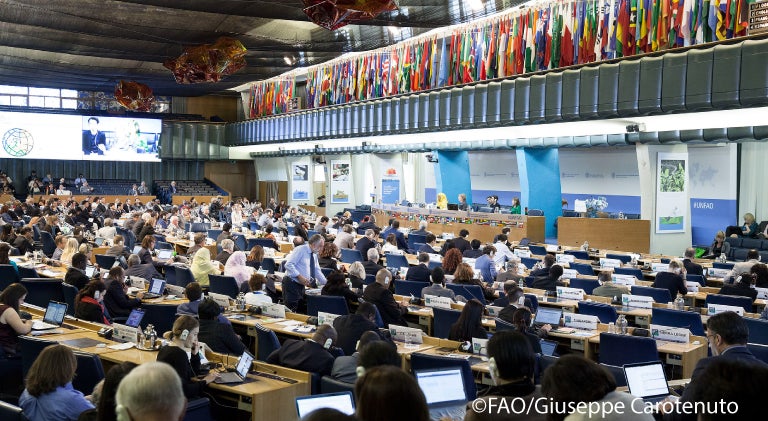In December 2016, Friedman representatives traveled to Rome to take part in the United Nations (FAO) and World Health Organization International Symposium on Sustainable Food Systems for Healthy Diets and Improved Nutrition as part of the Decade of Action on Nutrition. The event was described as a platform for discussion where "practical solutions and successful country experiences in implementing sustainable food systems will be shared."
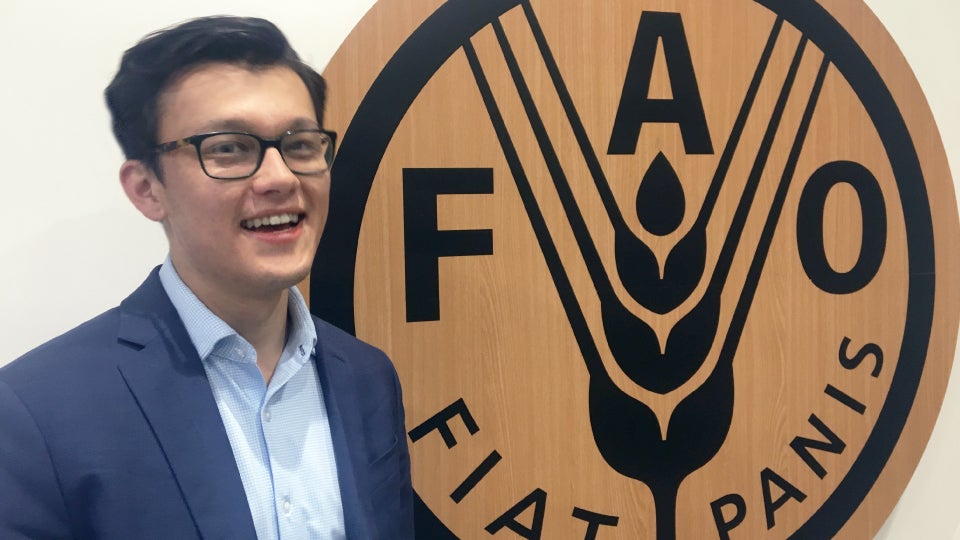
The Friedman School was chosen to represent North America in a student-led policy dialogue occurring as part of the symposium. Orion Kobayashi, at the time, an M.S. candidate in the Food Policy and Applied Nutrition program, was appointed to speak on behalf of the Friedman student body. He was one of nine students from around the globe who participated in a live webcast discussion and presentation of the nutrition policy goals and research aims of preeminent academic institutions on all seven continents. "The fact that the UN chose The Friedman School means we have this role of being a small sample that reflects that larger voice about what sustainable food means in North America," said Kobayashi. "It's a great honor and a huge responsibility to bring these ideas forward."
Shaping the nutrition agenda
Kobayashi places the lifecycle of policy formulation and implementation on a theoretical timeline akin to the crests and troughs of a wave: There are different key time points where policy decisions, like the U.S. Dietary Guidelines, are made, "but in between these key points," he says, "it's about building the discussion and getting crucial items on the agenda. These sorts of events provide an opportunity to do this."
At an event like this, we are setting aspirational goals that will influence aid, donor decisions, and which kinds of projects will become key.
For example, Associate Professor Tim Griffin acted as an advisor to the 2015 Dietary Guidelines Advisory Committee, and continues to be an outspoken advocate for including sustainability issues within the scope of the next round of dietary guidelines in 2020. Sustainability was considered, but ultimately not included in America's 2015 Dietary Guidelines. "Talking to Tim, he's very optimistic that because it was brought to the table last time, it provides more of an opportunity for this to be discussed in the next round," said Kobayashi. "At an event like this, we are setting aspirational goals that will influence aid, donor decisions, and which kinds of projects will become key."
Connecting domestic and foreign policy
The exchange of information and ideas across national boundaries can have a meaningful impact on both domestic and foreign nutrition policies, explains Kobayashi. For example, "A congressional committee may cite as guidance something that the WHO or UN FAO says," and the converse can occur as well: "Policies we implement domestically can influence how they are eventually implemented internationally. People pay close attention to what the US does in terms of funding."
When we think food systems we tend to think locally, but on a real level the food system is international and it doesn't stop at the border.
In the Fundamentals of Nutrition Policy course at the Friedman School, students learn how a bill becomes a law, says Kobayashi. "This kind of thinking, on a larger global scale, can seem overwhelming" but, he stresses, conversing and sharing ideas with others around the globe is a tangible way to be active. "When we think food systems we tend to think locally, but on a real level the food system is international and it doesn't stop at the border."
A Dialogue With the Friedman Student Community
On December 2nd, 2016, the Friedman Student community gathered to discuss key points to deliver to Kobayashi in Rome via Skype. The next morning, Kobayashi participated in the Symposium's Student Interactive Session, titled "Bringing Fresh Perspectives." In this fashion, Friedman voices, opinions, and knowledge were shared with government officials, parliamentarians and non-state actors from private sector and research/academic institutions all across the globe.
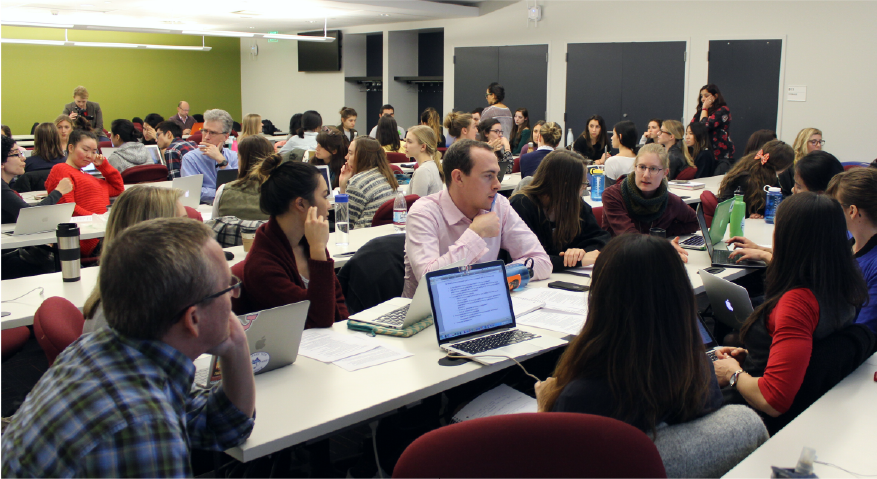
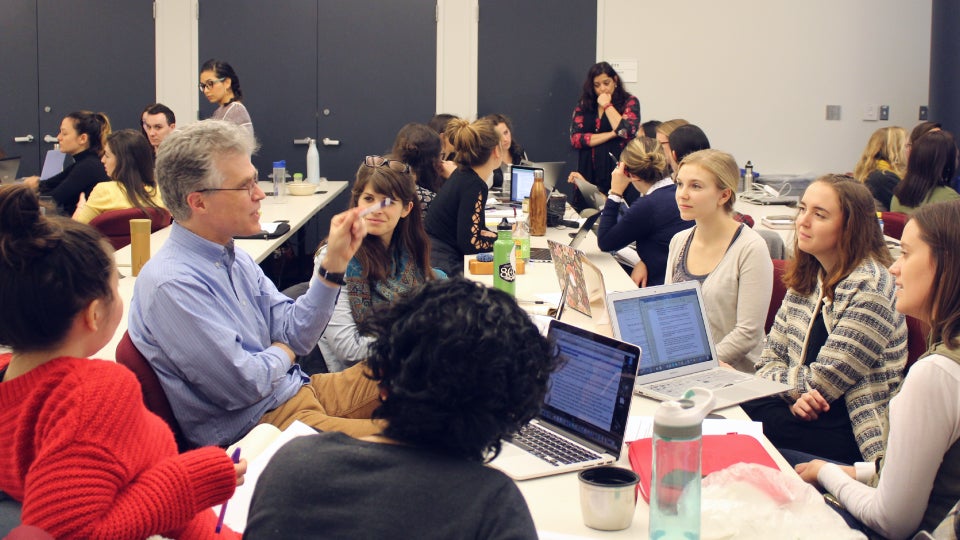
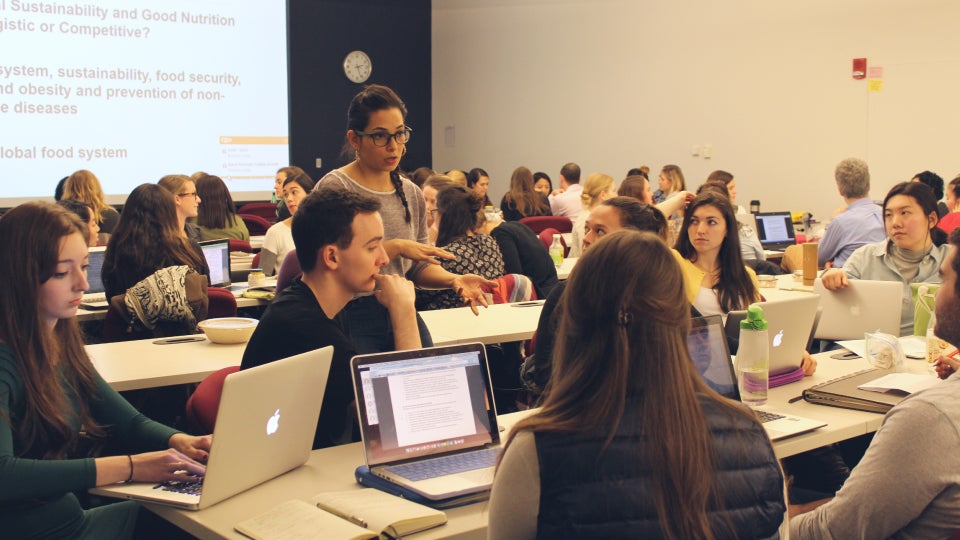
Our Strategic Plan: Creating and Enabling Leaders
Ensuring healthy food and nutrition throughout the world is a global issue of enormous complexity. We train our students to work together across disciplines, which is becoming the norm in the 21st century. Our faculty, students, and alumni continue to shape domestic and international nutrition policy and programs.
